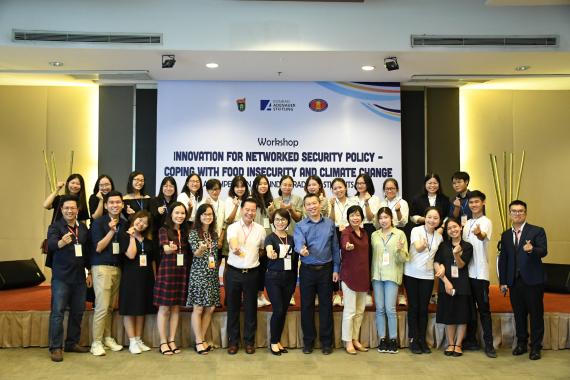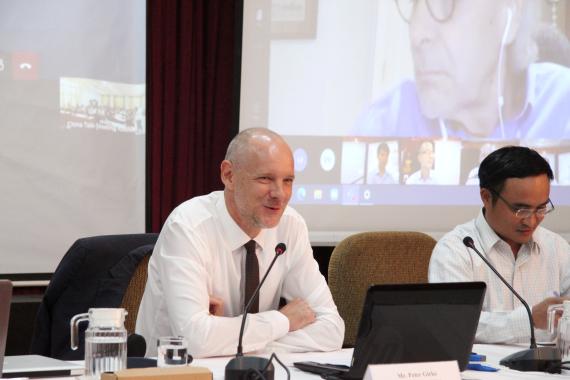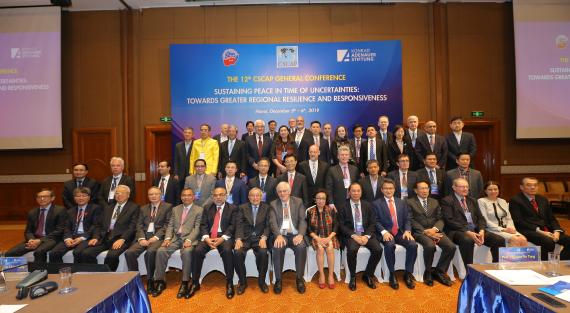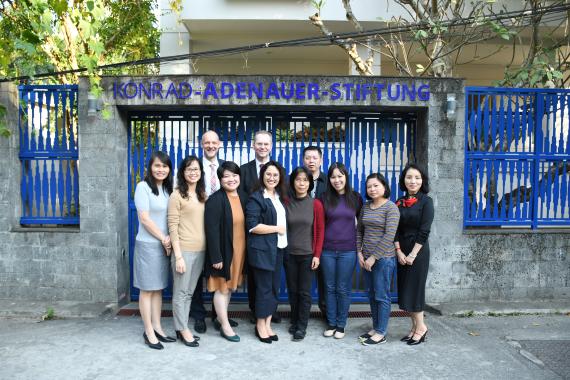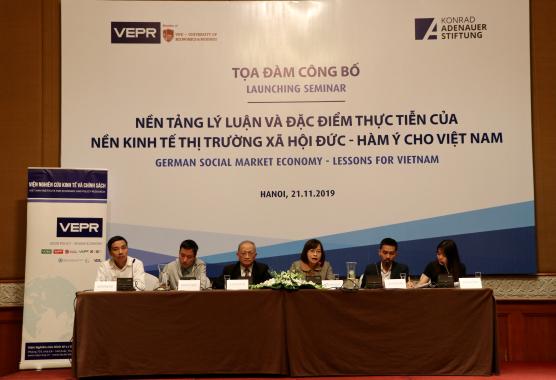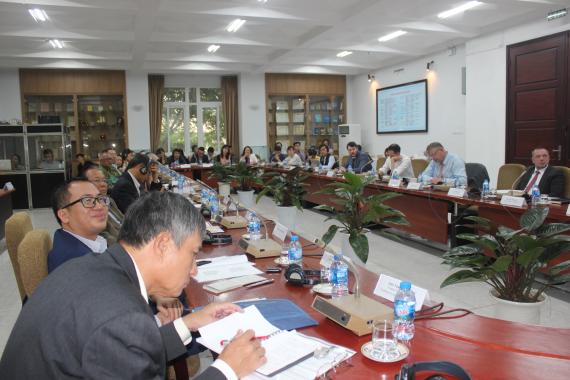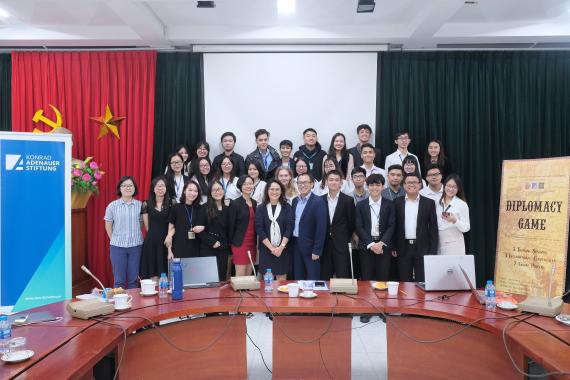Veranstaltungen - Auslandsbüro Vietnam
Derzeit sind keine Veranstaltungen geplant.
Expertengespräch
The China Talk 23
The future of world order: a view from China
China Talk 23 aims to facilitate a robust exchange of ideas, insights, and perspectives on the theme “The future of world order: a view from China”. This is a continuation of the Diplomatic Academy of Vietnam (DAV) China Talk series in collaboration with Konrad – Andenauer – Stiftung (KAS) in Vietnam, which has been bridging the fields of Chinese studies since 2015.
Forum
ASEAN FUTURE FORUM 2024
Toward Fast and Sustainable Growth of a People-Centered ASEAN Community
Konrad-Adenauer-Stiftung Vietnam eagerly anticipates the inaugural ASEAN Future Forum 2024, scheduled to occur on April 23, 2024, in Ha Noi, Vietnam. The genesis of this Forum was unveiled by Prime Minister, H.E. Pham Minh Chinh, during the 43rd ASEAN Summit in September 2023. The Forum, under the theme “Toward fast and sustainable growth of a people-centered ASEAN Community” will discuss deliberations on the future of ASEAN in both practical and visionary ways in the context of fast, complex developments in the strategic landscapes of the region and the world. Konrad-Adenauer-Stiftung Vietnam is proud to lend its support to this groundbreaking initiative, which will draw the participation of esteemed government officials, policymakers, experts, practitioners, and pertinent stakeholders from ASEAN Member States. Additionally, the Forum will welcome ASEAN's external partners and allies, underscoring its inclusive and comprehensive approach. The Diplomatic Academy of Vietnam (DAV), in strategic collaboration with the Konrad-Adenauer-Stiftung Vietnam, assumes a pivotal role as the primary executor of this ASEAN Future Forum.
Workshop
Roadmap to shorten the process and duration for annual state budget settlement
Workshop co-organized by KAS Vietnam and National Assembly's Finance and Budget Committee
The Finance and Budget Committee of the National Assembly is in charge of assessing the Government’s draft report on shortening state budget settlement process. The workshop aims to collect opinions/comments of policy-makers, national experts, and representatives of relevant agencies on the issue of State budget settlement. The workshop input will help the committee to better make a verification report on the budget settlement process to present at the NA sessions.
Workshop
Revise the Law on Managing and Using State Capital to Invest in Production & Business at Enterprises
Workshop co-organized by KAS Vietnam and National Assembly's Finance and Budget Committee
The workshop aims to collect opinions/comments of policy-makers, domestic and foreign experts, and representatives of relevant agencies on the amendment of the Law on management and use of state capital invested in production and business activities at enterprises. The workshop will provide the National Assembly’s Finance and Budget Committee with theoretical, scientific and practical basis to assess the revised Law on management and use of State capital invested in enterprises, which is submitted by the Government.
Seminar
The 12th OCEAN DIALOGUE
ENDURING MARITIME CONNECTIVITY IN A FRAGMENTING WORLD
Ocean Dialogue is one of the flagship cooperation programs between Konrad-Adenauer-Stiftung (KAS) Vietnam and Diplomatic Academy of Vietnam (DAV). Each Ocean Dialogue goes into a carefully set out topic. Since 2017, eleven dialogues have been organized with a wide range of topics such as Ocean Governance in the South China Sea, fisheries cooperation, plastic waste management, environment sustainability etc…and received many positive responses from international and national scholars, researchers in relevant fields. The series of Ocean Dialogue intends to raise the importance of the maritime/sea/ocean by building up the knowledge and looking at it from different angles. Maritime issues are of great importance to the countries around the South China Sea, which affect their economic, political, environmental and security context. Not only regionally is this topic of relevance, it is of equal importance to the global community.
Workshop
Workshop - The EU Approach to Cooperation in the Indo-Pacific: from Strategy to Practice
Phase 3: The EU’s Indo-Pacific Strategy in a New Context
Workshop
Assessment of Top 500 Vietnamese Private Enterprises (VPE500- Report 2023)
Dissemination Workshop of Research Project
Workshop
Toolkit for Neighborhood Planning towards Healthy Cities
A component of project "Health oriented Policies and Sustainable Building Practices to Promote Well-being and Green Urban Governance in Vietnam"
The toolkit "Neighborhood Planning towards Healthy Cities" is to promote health-oriented policies and sustainable building practices in Vietnamese cities, suggesting innovative urban green governance models to combine health-oriented policies with more sustainable building practices in Vietnamese cities.
Vortrag
Training on Prevention and Settlement of International Investment Disputes
Co-organized by KAS Vietnam and Ministry of Justice
Workshop
Completing the legal framework for credit institutions and non-performing loans in Vietnam
Workshop co-organized by Konrad-Adenauer-Stiftung Vietnam and Economic Committee of National Assembly
Konrad-Adenauer-Stiftung Vietnam co-operate with Economic Committee of National Assembly to organize a consultative workshop with international experts will provide additional input for the research "Completing the legal framework for credit institutions and non-performing loans in Vietnam"





